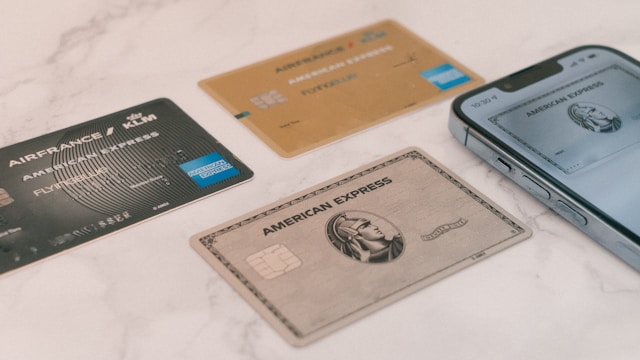Bad credit doesn’t last forever — but how long it takes to fix it depends on what’s hurting your score and how quickly you take action.
This article breaks it down clearly so you know what to expect, what to do, and how to make real progress, step by step.
Quick Answer: How Long Does It Take to Fix Credit?
| Situation | Estimated Time to Improve | Tips to Speed It Up |
|---|---|---|
| A few late payments | 3–6 months | Pay on time consistently |
| High credit card balances | 1–3 months after payoff | Pay down balances under 30% (or lower) |
| Collection accounts | 3–12 months | Negotiate pay-for-delete if possible |
| Charge-offs, defaults, bankruptcy | 1–7 years (with progress) | Rebuild with new positive accounts |
| Identity errors/fraud | 1–3 months (after dispute) | Dispute errors with bureaus |
Step-by-Step Plan to Fix Your Credit Faster
1. Get Your Credit Reports — Today
Time required: 10–15 minutes
Go to AnnualCreditReport.com and download reports from:
- Experian
- Equifax
- TransUnion
Look for:
- Late payments
- Collections
- High balances
- Mistakes or accounts you don’t recognize
2. Dispute Errors (If You Find Any)
Fix Time: 1–3 months (usually faster)
Errors can seriously drag your score down — and disputing them is free.
How to do it:
- Go directly to each bureau’s website
- File a dispute with details and documents
- Wait 30–45 days for a response
Pro Tip: Fixing just one major error can improve your score fast.
3. Pay Down Credit Card Balances
Fix Time: 30–60 days (after payment posts)
Credit utilization (how much of your credit you’re using) is a big deal.
Aim to use under 30% of your credit limit — under 10% is even better.
Example:
- Credit limit = $1,000
- Balance goal = less than $300
Pay before your statement date to make sure it reflects in your score update.
4. Bring Accounts Current
Fix Time: 1–6 months (depending on how late they are)
Late payments hurt most if they’re recent. Get current as soon as possible:
- Call creditors to set up a payment plan
- Ask if they’ll remove the late mark after you pay (some will!)
Set up autopay to make sure you never miss another due date.
5. Handle Collections Wisely
Fix Time: 3–12 months
Some newer credit models ignore paid collections, which is good news!
Options:
- Pay-for-delete: Ask the collection agency to remove the account if you pay
- Settle for less: If full payment isn’t possible, negotiate a lower amount
Always get any agreement in writing before paying.
6. Open a Positive New Account (If Needed)
Fix Time: 3–6 months to start showing impact
If you have very few or no open accounts, rebuilding will take longer. Try:
- Secured Credit Card – You put down a deposit, and it reports like a regular card
- Credit-Builder Loan – Small loans from credit unions or apps like Self
- Become an Authorized User – Ask a friend/family member with good credit
Use responsibly and keep balances low. Even $10–$20 monthly spend is enough.
7. Stay Consistent — Credit Rewards Good Habits
The longer you go without new negatives, the better.
What helps over time:
- On-time payments (every single one counts)
- Low credit usage
- Keeping old accounts open
- Avoiding too many new credit inquiries
Check your score monthly to track improvements using free tools like:
- Credit Karma
- Experian
- Your credit card provider
How Fast Will My Score Actually Go Up?
| Positive Action | Typical Time to Show Impact |
|---|---|
| Pay off credit cards | 30–60 days |
| Dispute and remove an error | 30–45 days |
| Get current on overdue accounts | 1–6 months |
| Add a secured card or builder loan | 3–6 months |
| Remove a collection account | 2–6 months |
Realistic Timeline Example
If you start today and stay consistent:
- Month 1–2: Pull reports, dispute errors, pay down credit cards
- Month 3–5: Open a secured card, keep paying on time
- Month 6–9: Clear collections, lower utilization further
- Month 10–12: Credit score climbs steadily — often by 50–100+ points
Helpful Tools & Resources
| Tool/Service | What It Does |
|---|---|
| AnnualCreditReport.com | Get free credit reports |
| Credit Karma / Experian | Monitor score and credit changes |
| Self / Chime / CreditStrong | Build credit with small loans |
| NFCC.org | Free credit counseling & budgeting |
Final Thought: Fixing Credit Takes Time, but Not Forever
Most people see meaningful credit improvements within 3–6 months when they take consistent action. And over 12–24 months, you can go from poor to good or even excellent.
You don’t need to be perfect — you just need to start.
First step today: Pull your free credit report, write down your three biggest negatives, and choose one small win to work on this week.
Your future self will thank you.



